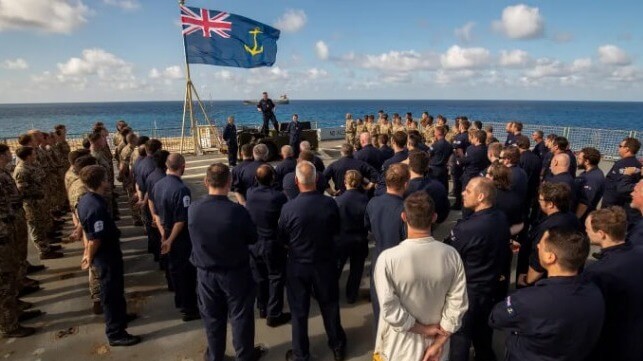Royal Fleet Auxiliary Officers Proceed with Work Slowdown Over Pay Dispute

The UK’s powerful trade union Nautilus said it has decided to proceed with a job action despite the country being plunged into a general election. Parliament officially dissolved one minute after midnight on Thursday, May 30, signally the start of a five-week run up to voting on July 4, but according to the union, the action was necessary over a long-running pay dispute.
The pay dispute began last fall after both Nautilus, which represents RFA officers, and the RMT (National Union of Rail, Maritime and Transport Workers) which represents employees in the deck, engine, communications, and catering areas, rejected government offers for pay increases.
The union reported the government imposed a 4.5 percent pay increase this year. Nautilus has called for a consolidated pay rise that reflects the high rate of inflation and a pathway to pay restoration. They allege in real terms the members have experienced a pay cut of over 30 percent since 2010 due to inflation and meager raises or pay freezes. They point out that the Royal Navy received a five percent pay increase this year while also alleging that the ranks of the RFA are down 28 percent since 2015.
RFA members are civilian employees who operate the supply and logistics ships for the Royal Navy. Formed in 1905, the fleet consists of 13 vessels including tankers and supply ships. There are approximately 1,750 individuals classed as civil servants in the RFA according to the RMT. They work four-month tours at sea.
Both unions took a strike vote late in 2023 and threatened the first strike at the RFA in its 119 years. Five years ago in 2019, the RMT also threatened a strike against the RFA. Nautilus reports 60 percent of the RFA officers turned out for the vote with 79 percent authorizing a full-on strike while 85 percent supported a lesser job action.
The union in mid-May, before Prime Minister Rishi Sunak accelerated the elections to July 4, said that the RFA officers would begin their job action on June 1. They are emphasizing that this is an “action short of a strike,” where the members will “not provide cover or act in a capacity above or below their job title.” The officers will only undertake work responsibilities commensurate with their job title according to Nautilus. Today, they reported the action will proceed as scheduled despite the elections.
Two weeks ago, on May 19, the RMT conducted a full strike for one day that Sunday involving all the ships in port, including Birkenhead, Portland, Plymouth, and Falmouth. Both unions said their actions were because, after a series of talks between the unions and the government, no credible offer had been made.
"This decision to take industrial action has not been taken lightly but underlines the strength of feeling of members at the RFA who are overworked, underpaid, and undervalued,” said Nautilus International Director of Organising Martyn Gray. "It is incumbent on all political parties to use this election period to affirm their support for our national defense and the Royal Fleet Auxiliary by committing to a pay rise reflective of the rate of inflation and restoring the pay our members have lost over the last decade.”
Nautilus says it will seek to work with whoever forms the next government to find a solution, but notes its strike mandate remains active until October. They threatened “If a solution is not forthcoming in the early stages of a new government further action will be taken."
The Sunak government recently outlined its plans to build new vessels for the RFA. Members of the government however were also quoted as saying the RFA would have to evolve to reflect the changing defense environment of the 21st century.
No comments:
Post a Comment